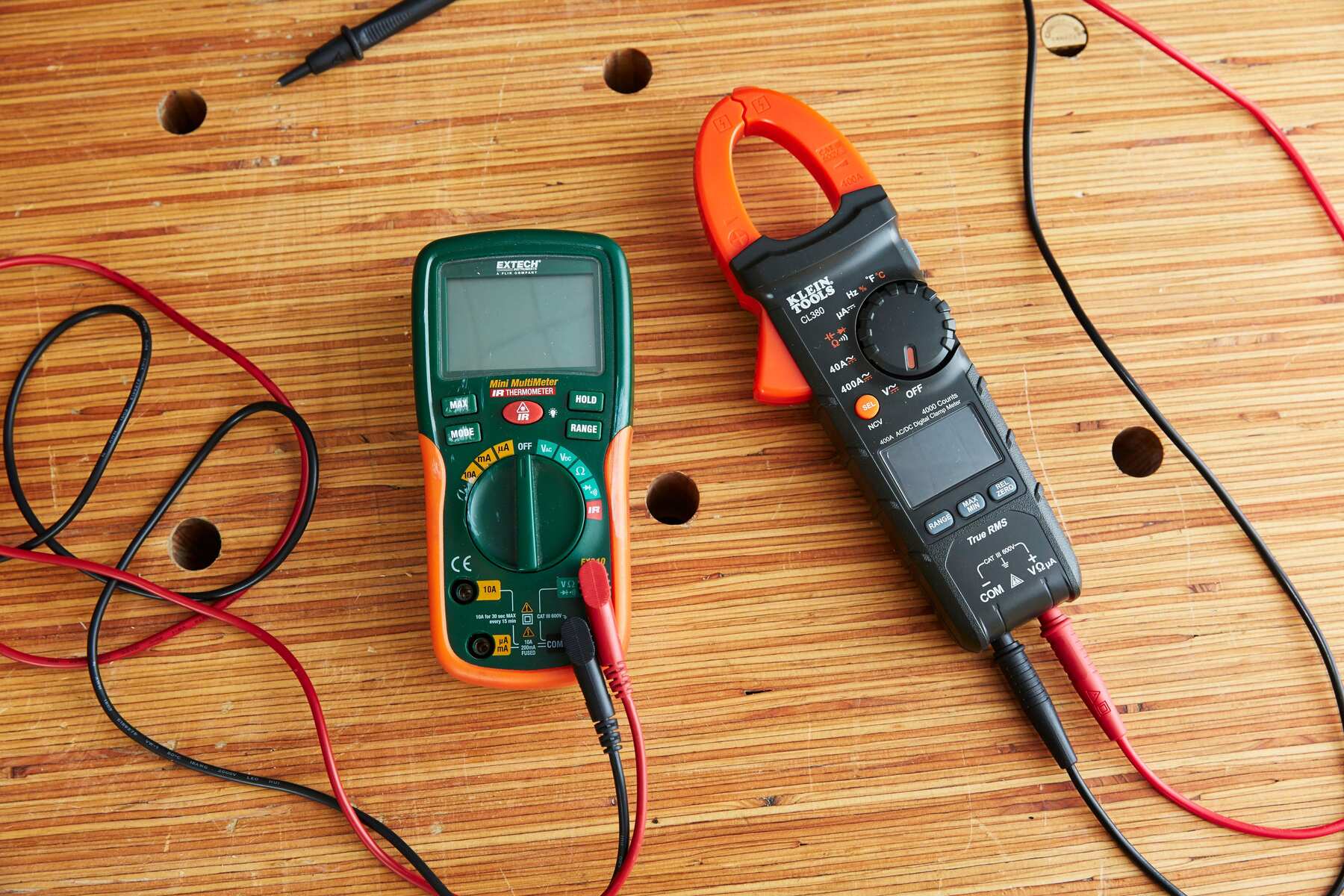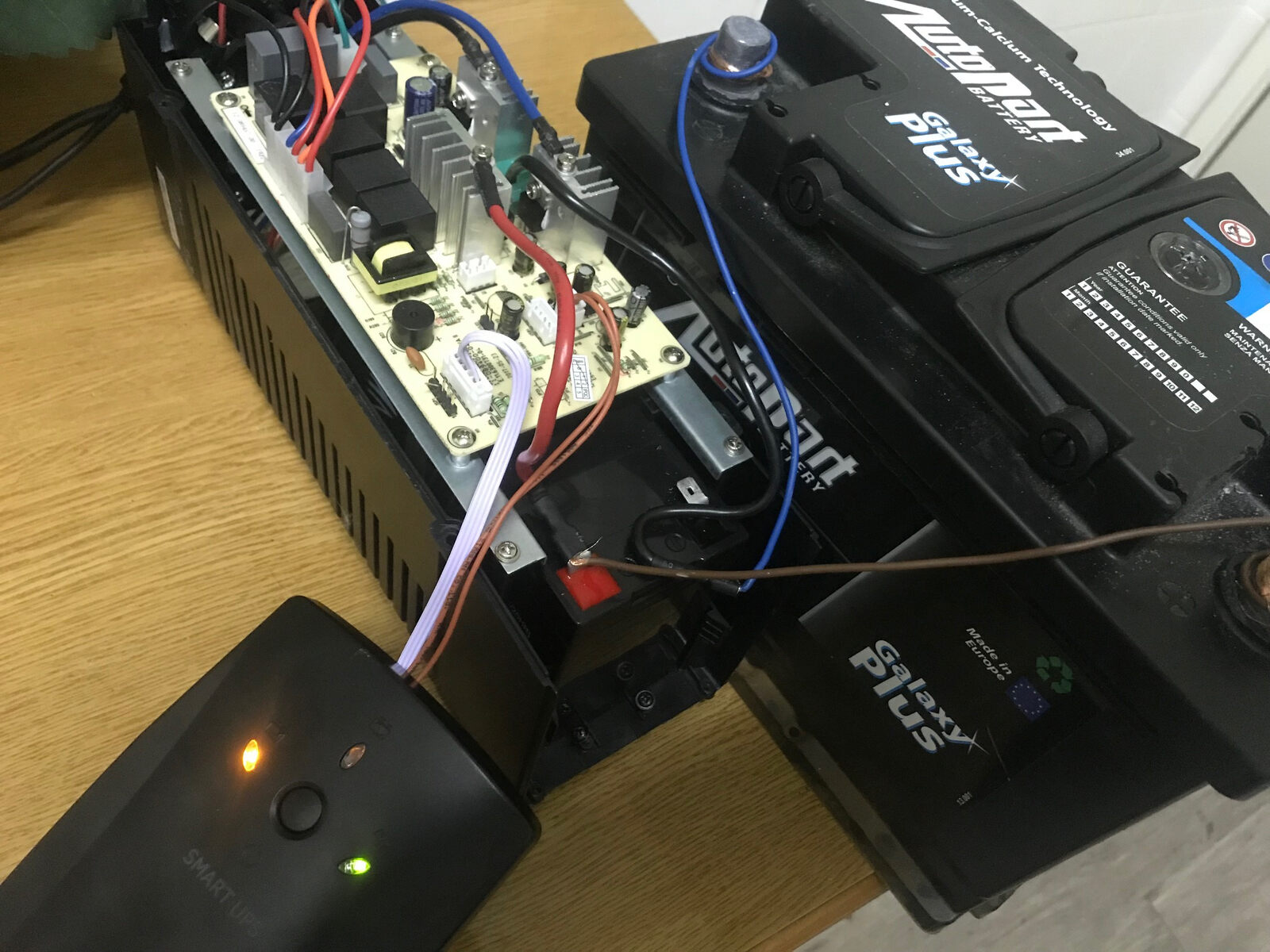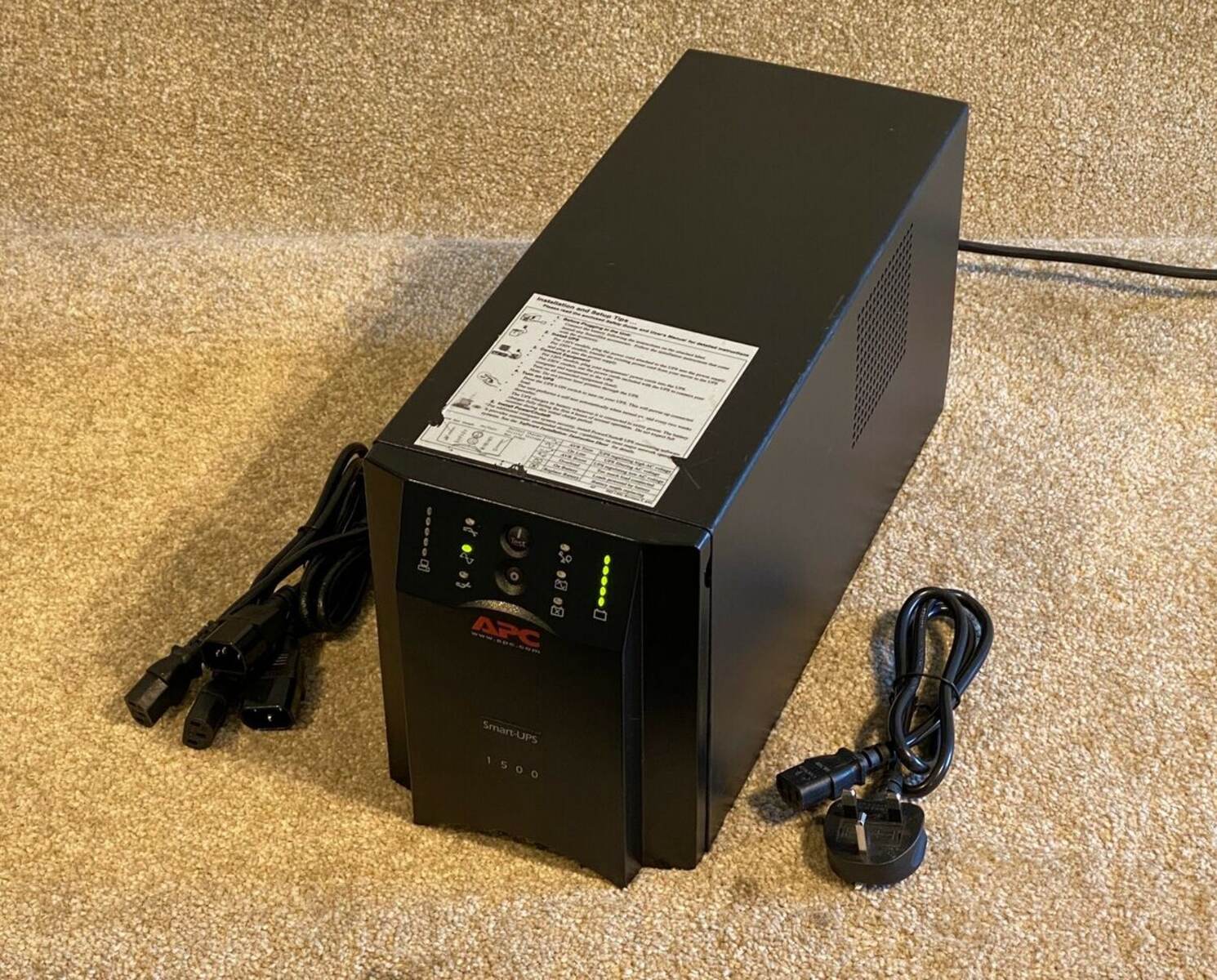Introduction
When it comes to Uninterruptible Power Supply (UPS) batteries, understanding their voltage is crucial. The voltage of a UPS battery refers to the electrical potential difference between the positive and negative terminals. This voltage plays a vital role in determining how efficiently the UPS system can provide backup power during outages or fluctuations in the main power supply.
In this article, we will delve into the topic of UPS battery voltage, exploring its significance, common ratings, and how to check if the voltage is correct. Whether you are a homeowner with a UPS system to protect your valuable electronic devices or a business owner relying on uninterrupted power for critical operations, having a clear understanding of UPS battery voltage is essential.
By grasping the importance of the correct voltage and knowing how to verify it, you can ensure that your UPS battery operates optimally and provides the necessary power backup when needed. So, let’s dive in and demystify the world of UPS battery voltage!
Understanding the Voltage of a UPS Battery
To comprehend the voltage of a UPS battery, it’s essential to have a basic understanding of electrical principles. Voltage, measured in volts (V), is the force or pressure that drives an electric current through a circuit. In the case of a UPS battery, the voltage represents the energy potential contained within the battery to provide backup power.
The voltage of a UPS battery typically depends on the number and configuration of cells within the battery. Each cell typically has a nominal voltage, and when cells are connected in series, their voltages combine to form the overall battery voltage.
It’s important to note that the voltage of a UPS battery is not constant throughout its entire discharge cycle. As the battery is utilized and loses charge, the voltage will gradually decrease. This decrease in voltage indicates the battery’s depleted energy level and the need for recharging.
Different types of UPS systems have varying voltage requirements. Common UPS battery voltages include 12V, 24V, 48V, and higher. The selection of the appropriate voltage for a UPS system depends on the specific application, power requirements, and the devices being powered. It is essential to consult the UPS manufacturer’s specifications to determine the correct voltage for your system.
Additionally, it’s important to consider the intended use of the UPS system when selecting the battery voltage. Some devices may be sensitive to voltage fluctuations and require a specific voltage level to function optimally. In such cases, using the recommended voltage ensures the proper operation and protection of the connected equipment.
By understanding the voltage of a UPS battery and the factors that influence it, you can make informed decisions regarding the selection and maintenance of your UPS system. In the next section, we will explore the various factors to consider when determining the appropriate voltage for your UPS battery.
Factors to Consider
When determining the voltage for your UPS battery, several factors should be taken into consideration to ensure optimal performance and compatibility with your specific power needs. Here are some essential factors to consider:
- Power Requirements: The voltage requirement of your UPS battery should align with the power requirements of the devices it will be supporting. Different devices may have different voltage requirements, so it’s crucial to match the battery voltage to the devices you plan to connect to the UPS.
- Compatibility: Check the compatibility of the UPS system and the UPS battery voltage. Ensure that both the UPS unit and the battery are designed to work together effectively. Using an incompatible battery voltage can negatively impact the UPS system’s performance and even lead to damage.
- Scalability: If you anticipate expanding your power requirements in the future, consider selecting a UPS battery voltage that allows for scalability. Choosing a higher voltage may provide more flexibility to add additional batteries or connect to larger loads in the future.
- Safety: Safety should always be a top priority. Select a UPS battery voltage that adheres to the safety standards and regulations mandated by relevant authorities. This ensures that the battery operates safely and minimizes the risk of accidents or damage.
- Availability: Consider the availability of UPS batteries with the desired voltage. Ensure that replacement batteries are readily accessible and reasonably priced, as this can impact the maintenance and longevity of your UPS system.
Taking these factors into account will help you make an informed decision when selecting the voltage for your UPS battery. It is always advisable to consult the manufacturer’s guidelines or seek professional assistance to ensure that the chosen voltage aligns with your specific needs and equipment requirements.
Now that we have covered the important factors to consider, let’s explore some common voltage ratings for UPS batteries in the next section.
Common Voltage Ratings for UPS Batteries
UPS batteries come in different voltage ratings to accommodate various power requirements and system configurations. The most common voltage ratings for UPS batteries include:
- 12V: This is a popular voltage rating for small-scale UPS systems and is commonly used to power individual devices such as routers, modems, and small electronics.
- 24V: Often used in medium-sized UPS systems, a 24V battery configuration provides increased power capacity compared to 12V systems. It is suitable for powering multiple devices or small office setups.
- 48V: This voltage rating is commonly found in larger UPS systems used for critical applications like data centers and server rooms. The 48V configuration offers high power capacity and is capable of providing backup power for a significant number of devices.
- 72V, 96V, or higher: For more demanding applications, UPS batteries with higher voltage ratings may be necessary. These configurations are commonly utilized in industrial settings or environments requiring extensive power backup capabilities.
It’s important to note that the actual number of cells within the UPS battery determines the voltage rating. Each cell typically has a nominal voltage, and when multiple cells are connected in series, their voltages add up to create the overall battery voltage rating.
When selecting a UPS battery voltage, consider the specific power requirements of the devices you need to support, the size of your UPS system, and the recommended voltage by the manufacturer. It is crucial to choose a voltage rating that not only matches the power needs of your devices but also ensures compatibility and optimal performance of your UPS system.
Now that we have explored the common voltage ratings for UPS batteries, let’s move on to understanding the importance of choosing the correct voltage for your UPS system in the next section.
Importance of the Correct Voltage
Choosing the correct voltage for your UPS battery is vital for optimal performance, efficiency, and longevity of your UPS system. Here are some key reasons why the correct voltage is of utmost importance:
- Efficient Power Delivery: Using the correct voltage ensures that the UPS battery can provide a stable, reliable power supply to connected devices. Incorrect voltage can lead to power fluctuations, reduced efficiency, and potential damage to sensitive equipment.
- Extended Battery Life: Matching the voltage requirements of your UPS system and devices helps prevent overcharging, undercharging, and excessive strain on the battery. This, in turn, helps extend the lifespan of the battery, reducing the frequency of replacements and overall maintenance costs.
- Device Protection: The correct voltage ensures that connected devices receive the appropriate power input they require for safe and optimal operation. Using an incorrect voltage can lead to equipment malfunction, data loss, or even permanent damage.
- Compatibility and Reliability: UPS batteries and UPS systems are designed to work together based on specific voltage requirements. Using the correct voltage ensures compatibility, reliable performance, and seamless integration between the components.
- Safety: Choosing the correct voltage rating and following manufacturer guidelines ensures the safe operation of your UPS system. It reduces the risk of electrical shorts, fires, or other hazardous situations that could result from using incompatible or incorrect voltages.
By understanding and adhering to the correct voltage for your UPS battery, you can ensure the efficient functioning of your UPS system, protect your valuable equipment, and maintain a secure power backup solution for your home or business.
Now that we recognize the importance of the correct voltage, let’s move on to the next section where we will discuss how to check the voltage of your UPS battery to ensure it is correct and functioning as expected.
Checking the Voltage of Your UPS Battery
To ensure that your UPS battery is supplying the correct voltage, periodic voltage checks are essential. Here are some steps to follow when checking the voltage of your UPS battery:
- Power Off: Before conducting any voltage check, make sure to turn off and disconnect any devices connected to the UPS system. This ensures your safety and prevents any electrical interference during the testing process.
- Access the Battery: Depending on the UPS model, you may need to open the battery compartment or access panel to reach the battery. Refer to the manufacturer’s instructions or consult a professional if you are unsure about accessing the battery safely.
- Use a Multimeter: A multimeter is a handy tool that measures the voltage, among other electrical parameters. Set the multimeter to the DC voltage setting and connect the meter’s positive lead to the positive terminal of the battery and the negative lead to the negative terminal.
- Read the Voltage: Once the multimeter is properly connected, it will display the voltage reading. Compare this reading to the recommended voltage specified by the UPS system manufacturer. If the measured voltage matches the recommended voltage, your UPS battery is functioning correctly.
- Consider Replacement: If the measured voltage deviates significantly from the recommended voltage, it may be an indication of a faulty battery. In such cases, it is advisable to consider replacing the battery to ensure the continued reliability and performance of your UPS system.
Remember to exercise caution when working with electrical equipment and batteries. If you are unsure or uncomfortable performing these voltage checks yourself, it is always best to seek professional assistance to avoid any accidents or damage to the equipment.
By periodically checking the voltage of your UPS battery, you can identify any potential issues early on and take the necessary steps to maintain the optimal performance and functionality of your UPS system.
Now that we have covered how to check the voltage of your UPS battery, let’s explore what actions you should take if you discover that the voltage is incorrect in the next section.
What to Do if the Voltage is Incorrect
If you discover that the voltage of your UPS battery is incorrect, it is important to take appropriate actions to rectify the situation. Here are some steps to follow if the voltage is incorrect:
- Verify the Battery Type: Ensure that you are using the correct battery type for your UPS system. Using the wrong battery type can result in voltage discrepancies. Consult the UPS system manufacturer’s guidelines or seek professional advice if you are unsure.
- Check Battery Connections: Ensure that all battery connections are secure and free from corrosion or damage. Loose or faulty connections can affect the voltage output. Clean terminals and tighten connections if necessary.
- Replace the Battery: If you have confirmed that the battery is the source of the incorrect voltage, it is recommended to replace the battery. Replace it with a new battery that matches the recommended voltage and is compatible with your UPS system.
- Consult the Manufacturer: If the incorrect voltage persists even after replacing the battery, it is advisable to contact the UPS system manufacturer or a professional technician. They can provide further guidance and troubleshoot the issue to ensure the correct voltage is restored.
- Maintain Regular Checks: To prevent future voltage discrepancies, make it a habit to conduct regular checks on your UPS system. This includes inspecting battery connections, monitoring voltage levels, and following the manufacturer’s recommended maintenance practices.
It is important not to ignore the issue if the voltage of your UPS battery is incorrect. Operating with incorrect voltage levels can compromise the performance of your UPS system and the devices it supports. Taking prompt action will help maintain a reliable power backup solution and safeguard your valuable equipment from potential damage or data loss.
In situations where you are unsure or uncomfortable troubleshooting the UPS system yourself, seek assistance from a qualified technician or contact the manufacturer’s support team to ensure that the correct voltage is restored.
Now that we have explored the actions to take if the voltage is incorrect, let’s summarize the key points covered in this article in the concluding section.
Conclusion
Understanding the voltage of a UPS battery is essential for ensuring the efficient operation and longevity of your UPS system. By selecting the correct voltage, you can provide reliable backup power to your connected devices, protect them from voltage fluctuations, and maintain a safe power supply during outages.
We explored the factors to consider when determining the appropriate voltage for your UPS battery, such as power requirements, compatibility, scalability, safety, and availability. Choosing the right voltage rating ensures optimal performance, device protection, and the seamless integration of your UPS components.
In addition, we discussed some common voltage ratings for UPS batteries, including 12V, 24V, 48V, and higher, and highlighted the importance of choosing the correct voltage for your specific needs and equipment requirements.
We also provided guidance on how to check the voltage of your UPS battery using a multimeter and offered troubleshooting steps if the voltage is found to be incorrect, including verifying the battery type, checking connections, replacing the battery if necessary, and seeking manufacturer or professional assistance.
Regular voltage checks and proper maintenance are crucial to ensure the ongoing performance and reliability of your UPS system. By adhering to the recommended voltage and following the manufacturer’s guidelines, you can enjoy uninterrupted power backup and protect your valuable devices.
Remember, if you are unsure about any aspect of your UPS system or battery voltage, it is always best to consult the manufacturer’s guidelines or seek professional assistance to ensure safe and optimal operation.
With the knowledge gained from this article, you are now equipped to make informed decisions regarding the voltage of your UPS battery, allowing you to provide reliable power backup and protection for your home or business.

























